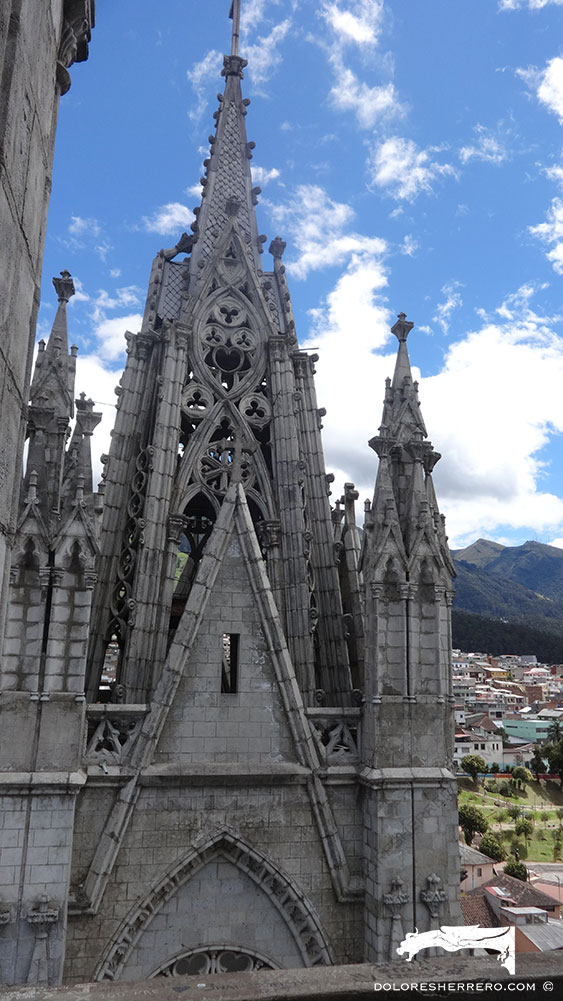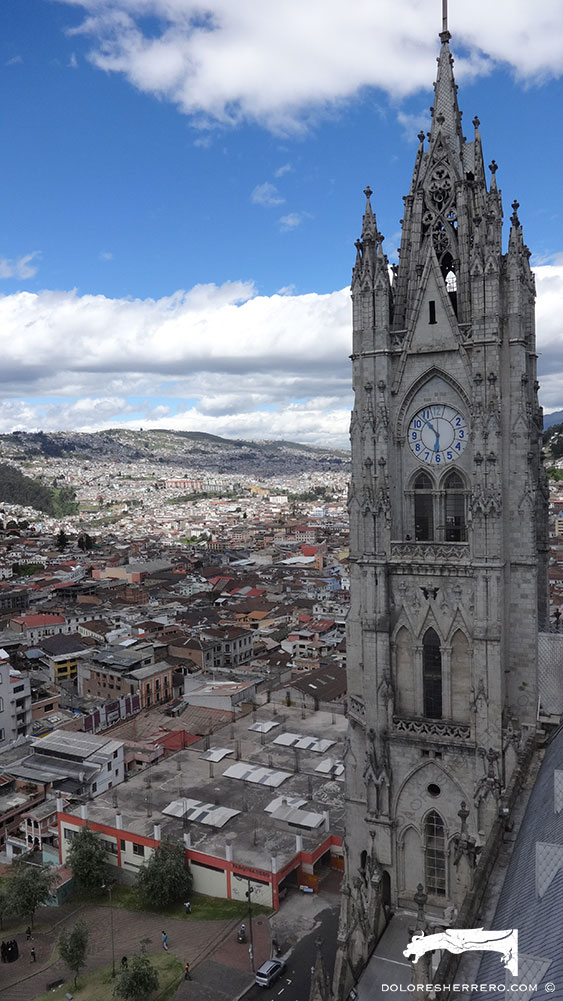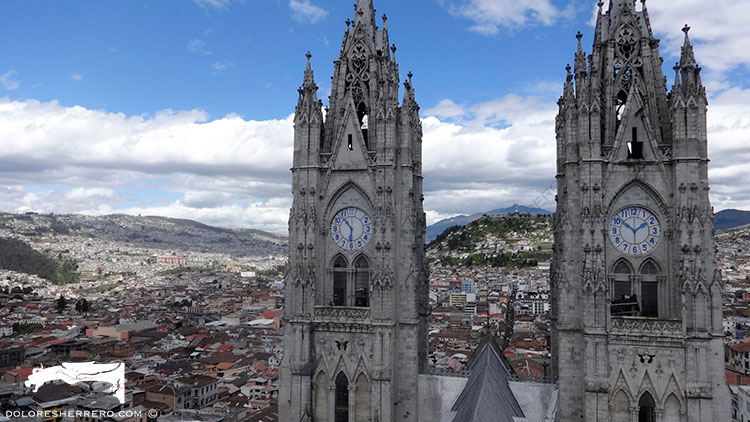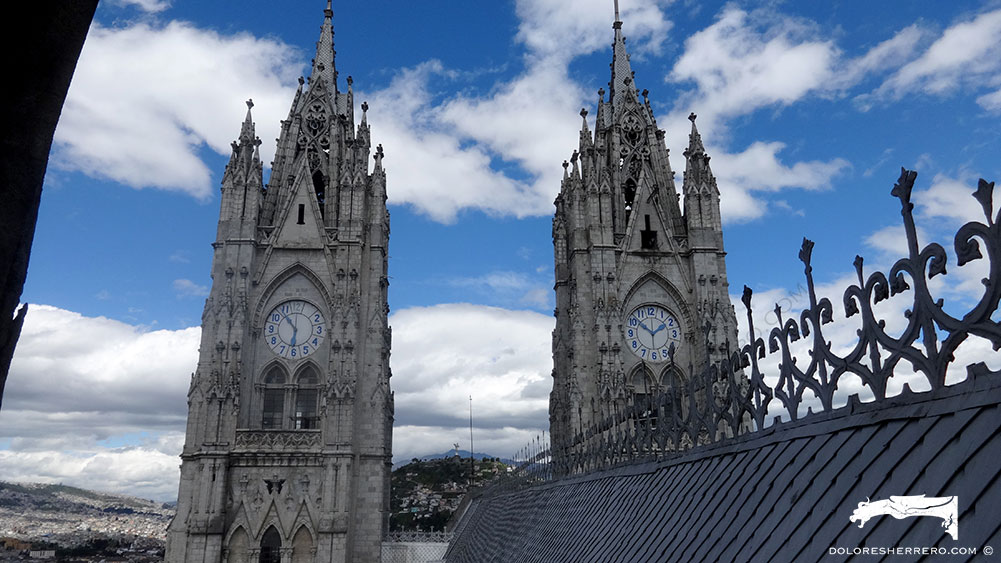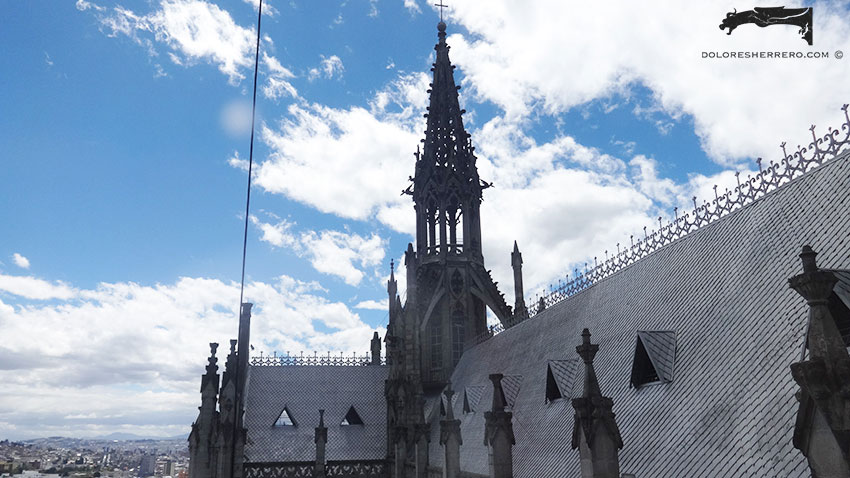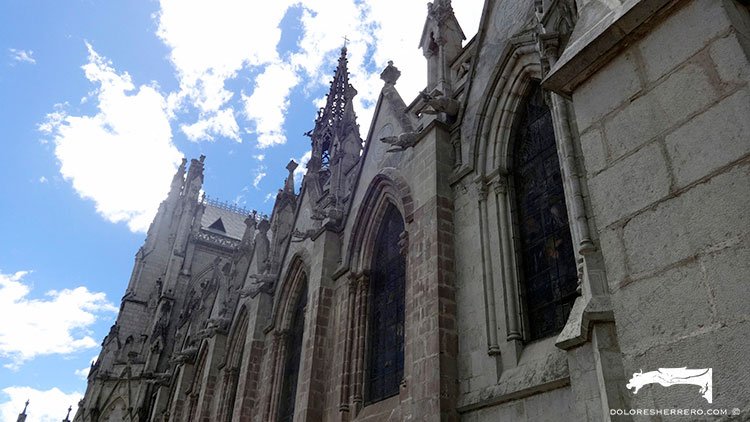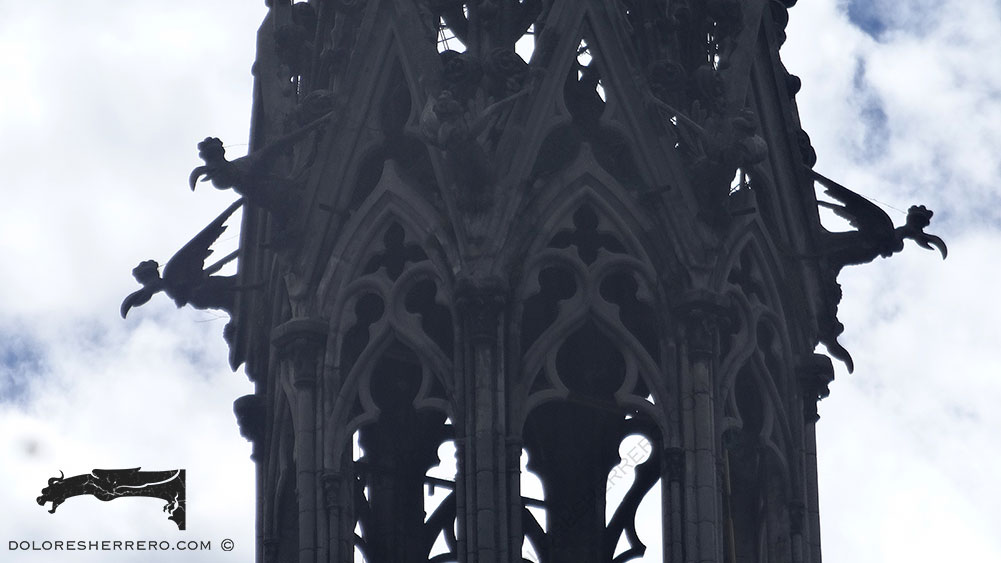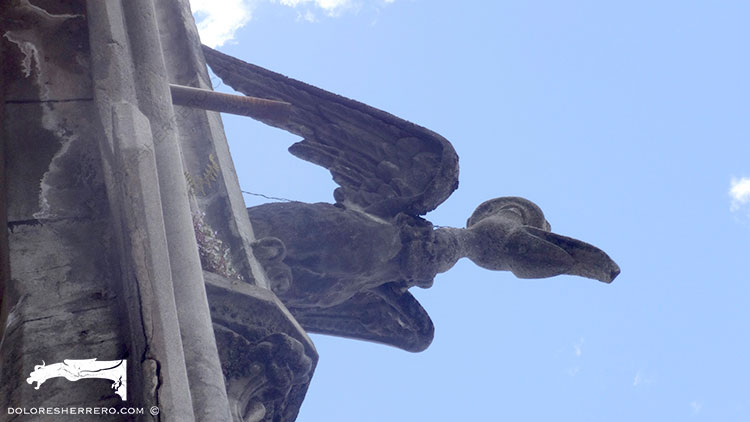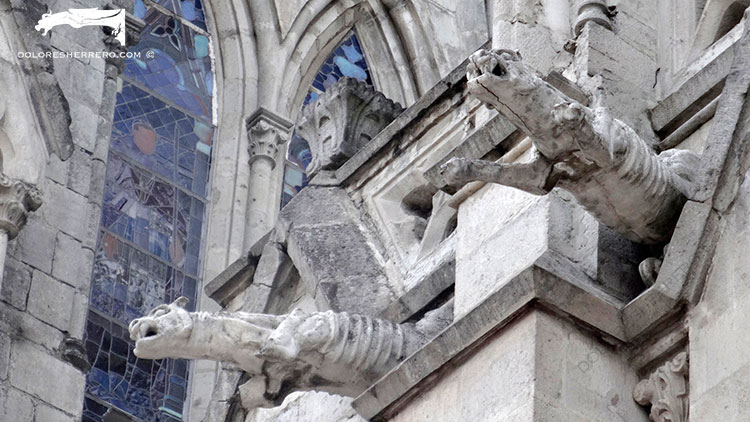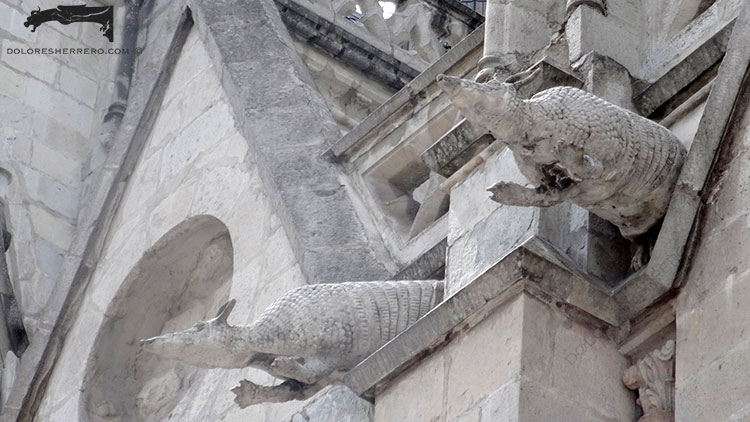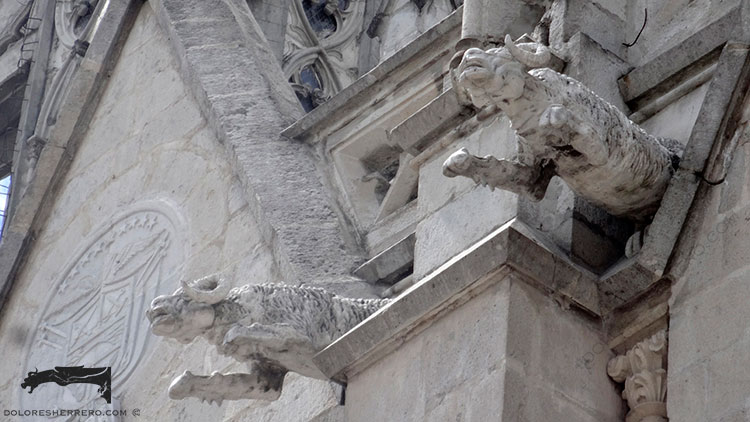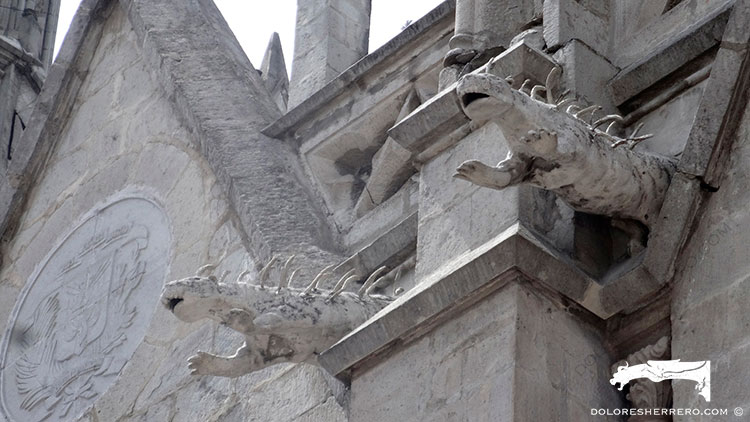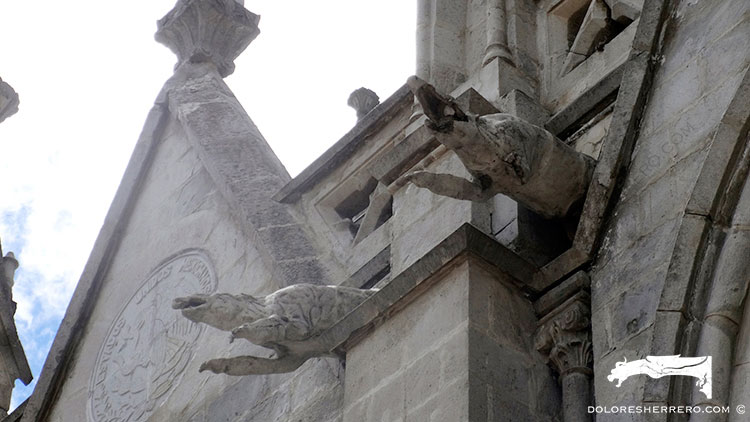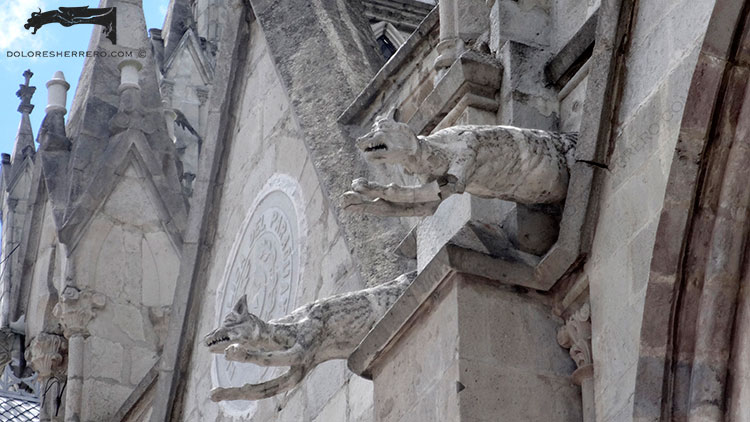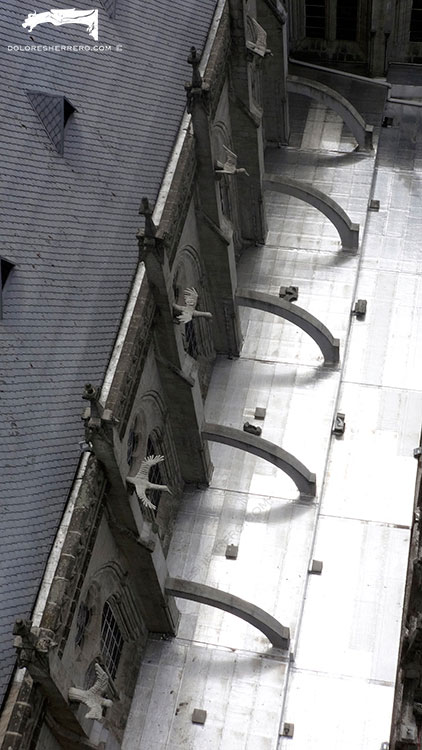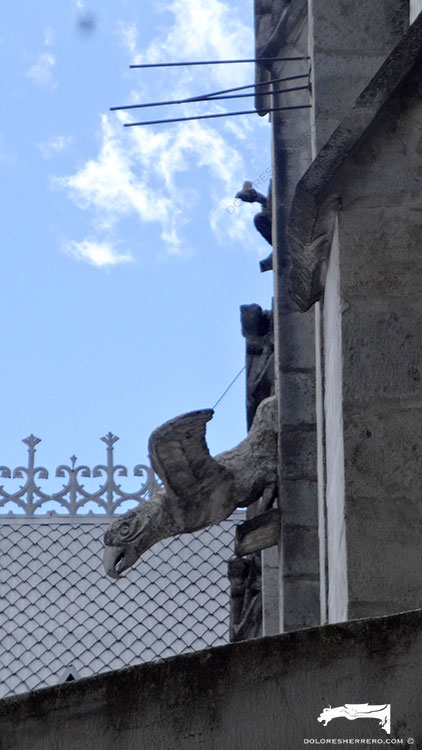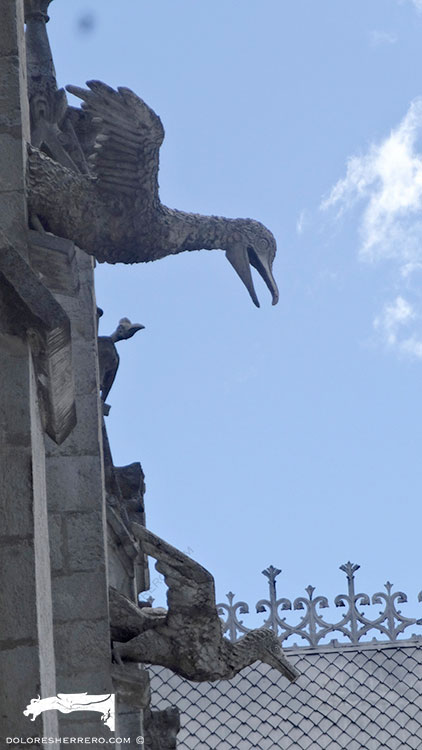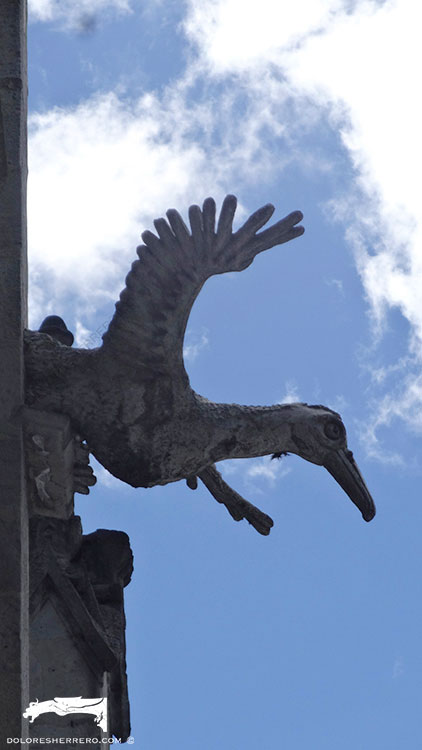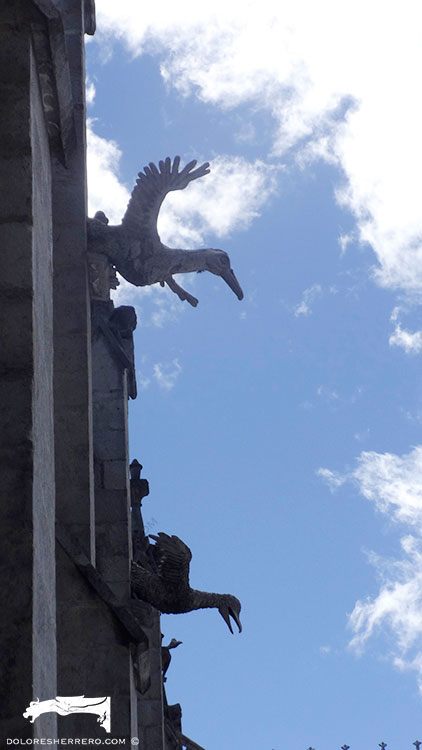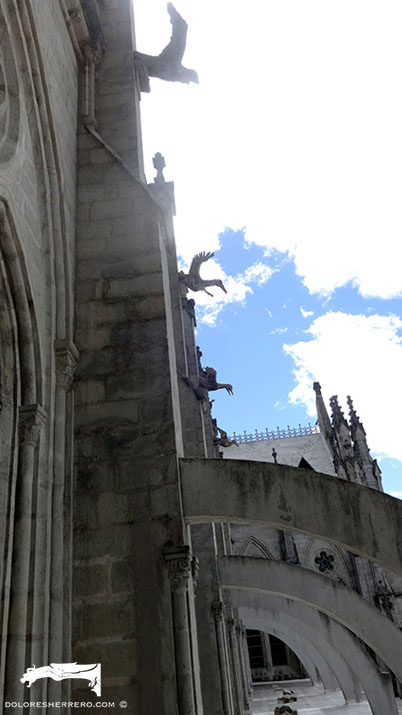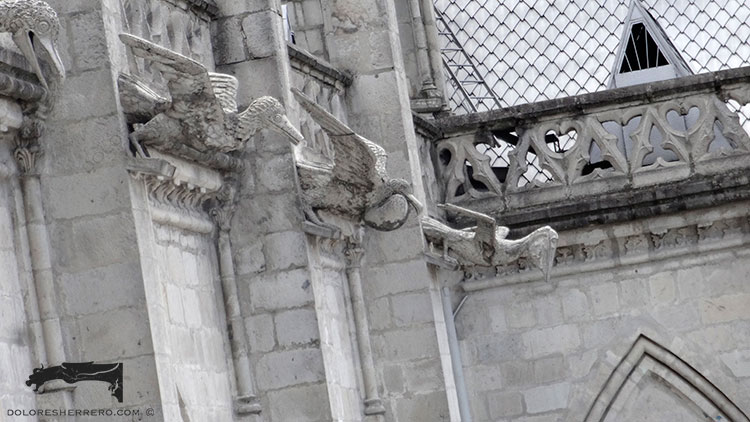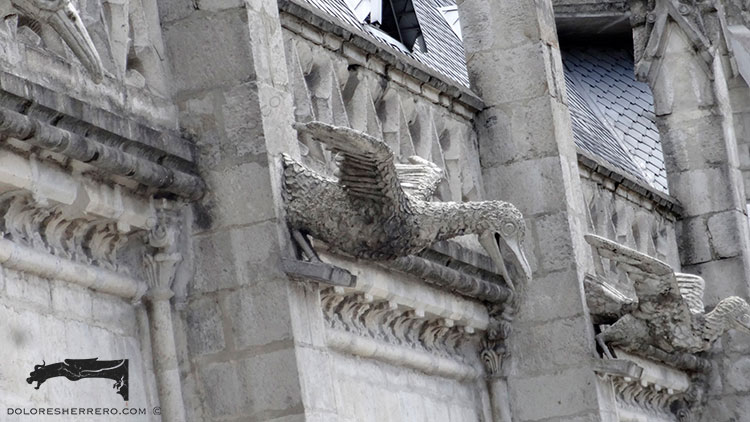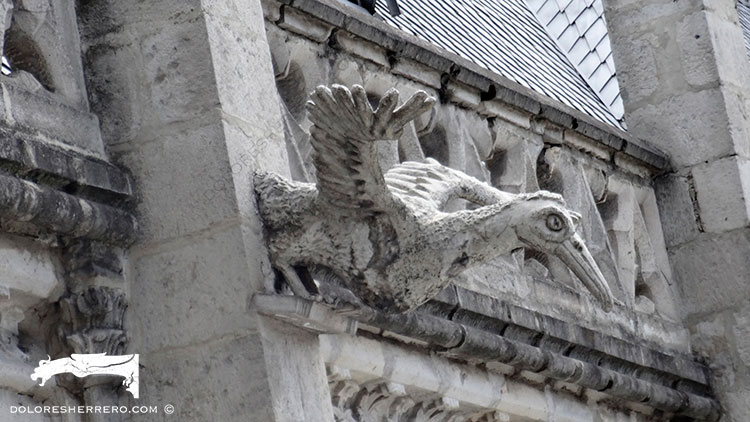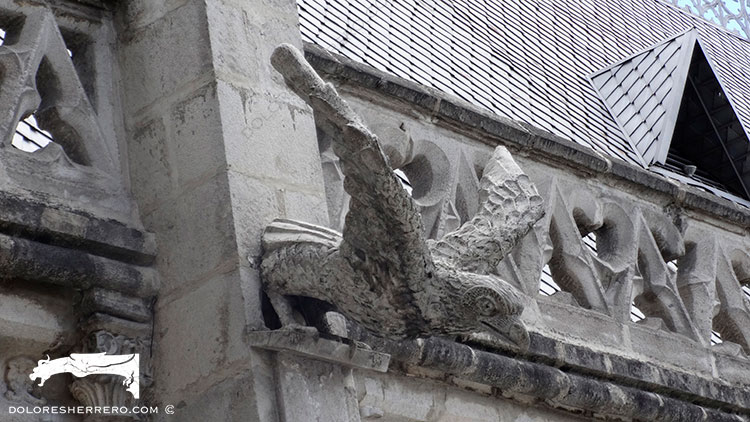The first post on our beloved Latin America is dedicated to Ecuador. We invite you to enjoy the fascinating gargoyles on the Voto Nacional Basilica in Quito, amazing figures that our son Manuel discovered on one of his many trips around the world, where he sometimes finds peculiar and surprising gargoyles, like the ones in Indonesia that we share with you.
A Neo-Gothic Jewel in the Heart of Quito
The basilica is in the city centre and is shrouded in legends and stories. For example, it’s said that the world will come to an end on the day when building work on the church is finally completed.
A Brief History of the Basilica of the National Vow
Regarded as the largest Neo-Gothic church in Ecuador, and even in America, the building is consecrated to the Sacred Heart of Jesus. It was proposed by priest and deputy of the Republic Julio Matovelle in 1883. The project was given to French architect Emilio Tarlier, who took his inspiration from the Cathedral of Notre-Dame in Paris. When you look at it, you can clearly see the European influence, it’s similar to Burgos Cathedral (Spain). It also looks like the Neo-Gothic Saint Patrick’s Cathedral in New York.
In 1884 the National Congress approved the building work and the first stone was laid in 1890. The structure was completed in 1924, the year when mass started to be celebrated in the central nave and the bells were rung in the towers. The building was erected with pink stone from the Pichincha mountain and grey stone from the parish of Lloa.
The Basilica was blessed by Pope John Paul II in January 1985 and it was officially inaugurated on 12 July 1988. From the top of the Basilica you can admire the wonderful city of Quito.
Zoomorphic Gargoyles and Grotesques on the Basilica of the National Vow: A Stone-Carved Fauna
The gargoyles on the Basilica are one of its attractions. What’s so original and extraordinary is that you can see depictions of Ecuador’s exotic fauna. Plus, alongside the gargoyles, you can also see other figures (grotesques) decorating the façades. A fascinating and unusual iconography decorating a church, allowing you to appreciate and enjoy a fantastic display, both in formal and typological terms, of Ecuador’s native fauna.
Animals include alligators, tortoises, blue-footed boobies, armadillos, monkeys, pumas, foxes, magnificent frigatebirds, pelicans, falcons or eagles, parrots, albatrosses, long-crested iguanas, rams, tapirs and, of course, the figure of the condor on the tower, the national symbol of Ecuador.
In addition to the gargoyles, we can also observe other sculpted figures—grotesques or chimeras—that project from the walls, adorning the façades.
This fascinating and unusual iconography allows us to appreciate and enjoy a magnificent display—both formal and thematic—of Ecuador’s endemic fauna. An exceptional and compelling ensemble unfolds in this gallery of sculptures, enriching the visual language of the basilica.
- Birds
- Condor
We invite you to discover an admirable artistic creation—an impressive collection of zoomorphic gargoyles and grotesques, featuring unique figures likely never seen before in Europe. This extraordinary and surprising bestiary accompanies the building, adding a naturalistic and exotic touch that is truly worth contemplating.
Chimeric Gargoyles
- Pumas
- Armadillos
- Rams
- Iguanas
- Alligators
- Foxes
Decorative Grotesques Inspired by Animal Forms
- Birds
- Parrot
- Birds
- Albatross
- Birds
- Birds
- Blue-footed booby, magnificent frigatebird and pelican
- Blue-footed booby
- Albatross
- Eagle or falcon
From Quito, these one-of-a-kind gargoyles and grotesques invite us to explore the artistic richness of South America, where stone comes to life through astonishing and deeply symbolic forms.
This entry was originally published in October 2017 and updated in August 2023.
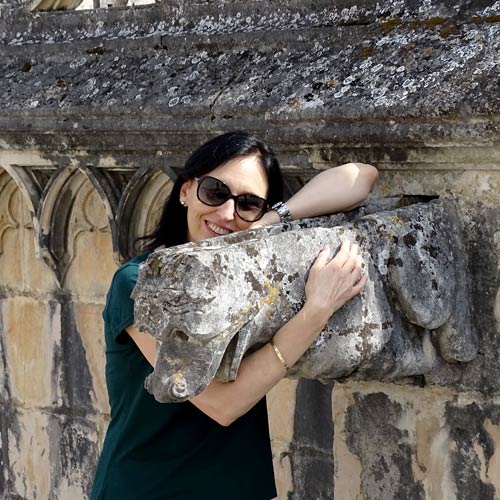
Doctor of Art History and researcher specializing in the study of gargoyles.
I am Dolores Herrero Ferrio, and my thesis, “An Approach to the Study of Gargoyles of Gothic Cathedrals in Castilla and León”, is dedicated to the study of these fascinating figures.
If you like gargoyles and art history, you will also enjoy my book, “The Gargoyle and Its Iconography,” a book I have written with great care for those interested in the world of gargoyles.
I have created my own Encyclopedia of Gargoyles, a Gargopedia to share with you, where you will discover all the secrets and wonders of these enigmatic sculptures.
I hope you enjoy this Gargopedia as much as I have enjoyed creating it, and remember that each gargoyle has a story to tell, and here you will discover them all.
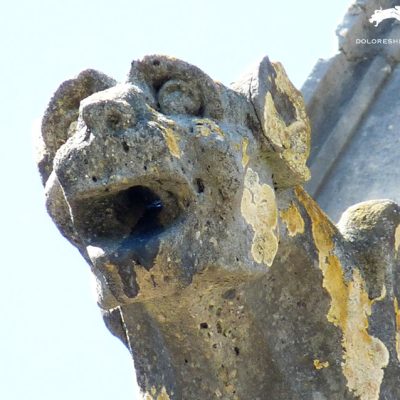 Gargoyles in Limoux (France): The Sculptural Ensemble of the Church of Saint-Martin
Gargoyles in Limoux (France): The Sculptural Ensemble of the Church of Saint-Martin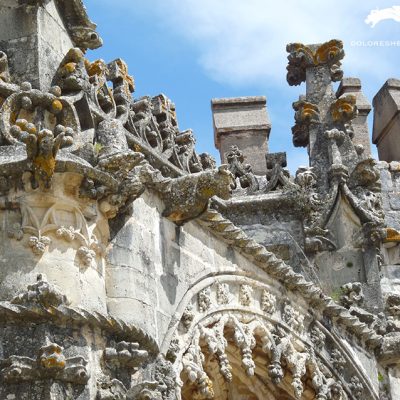 Gargoyles of Tomar in Portugal: Gothic Art and Templar Legacy
Gargoyles of Tomar in Portugal: Gothic Art and Templar Legacy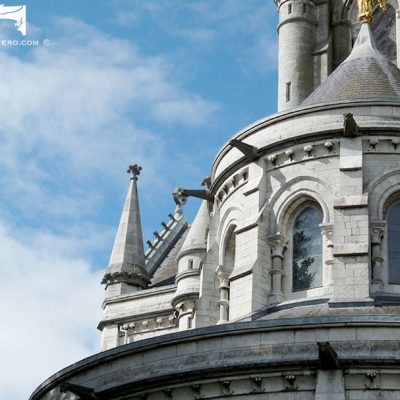 Gargoyles of Cork Cathedral: Fantastic Symbols in the Architecture of Ireland
Gargoyles of Cork Cathedral: Fantastic Symbols in the Architecture of Ireland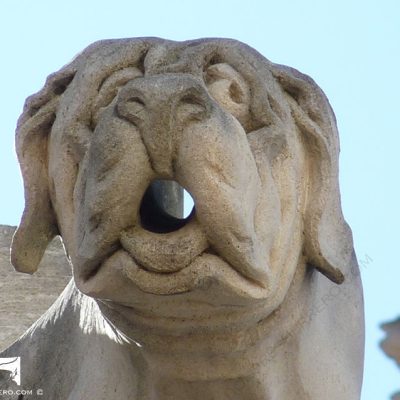 Gargoyles Shaped Like Dogs: Symbolism and Representation
Gargoyles Shaped Like Dogs: Symbolism and Representation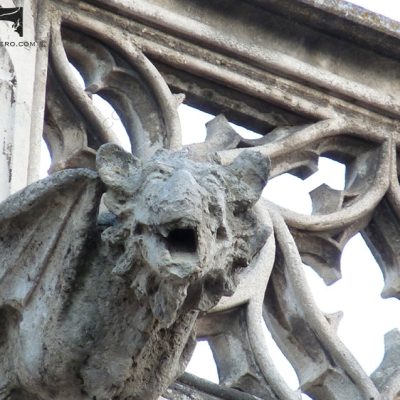 Gargoyles of the Loge de Mer in Perpignan (France): Sculptural Expressiveness in a Gem of Civil Gothic Architecture
Gargoyles of the Loge de Mer in Perpignan (France): Sculptural Expressiveness in a Gem of Civil Gothic Architecture